Where the American dream remains democratic
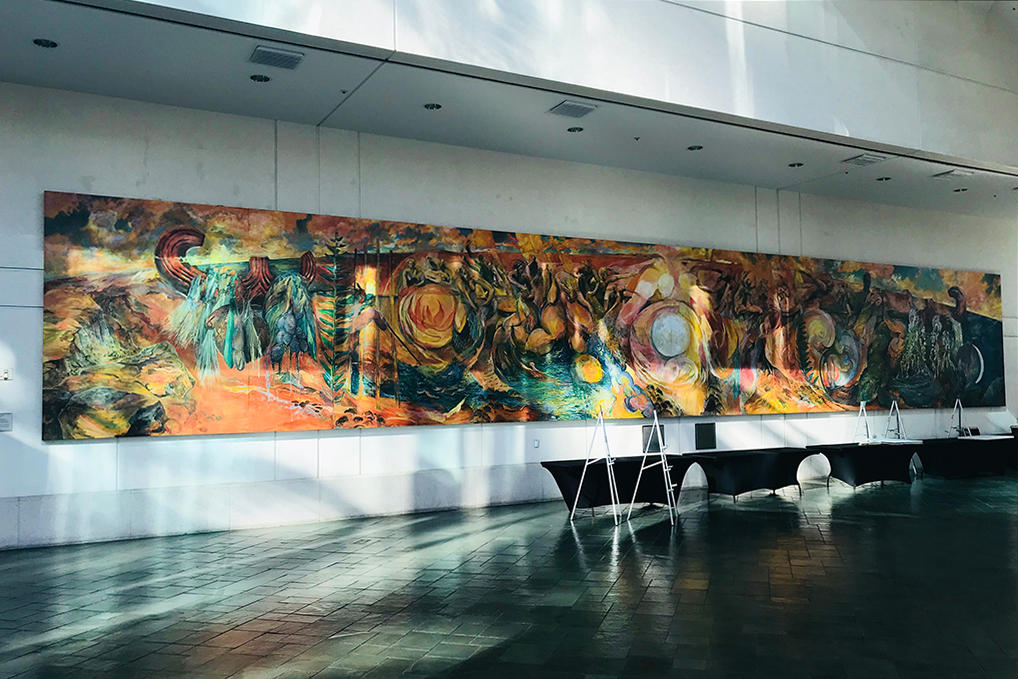
Six decades after joining the United States, the 1.5 million people of Hawaii have a very different take on the American dream. It is a community-based vision with open government and participatory democracy.
The relationship between Hawaii and Washington – the capital of the US – has never been uncomplicated. Hawaii (or Hawai’i in the local language) was an independent Pacific monarchy for almost a century before American business leaders staged a coup in 1893 and abolished the monarchy. A full-fledged annexation followed five years later.
“Our people have been under foreign rule for so long a time, many of us have forgotten our roots,” says Meleanna Meyer, whom I meet in the Honolulu Convention Center.
Together with artist-teacher colleagues (kumu) and stundents (haumana), she has created a massive mural called “New Old Wisdoms”.
The three-metre-high and ten-metre broad mural gives an impressive insight into the state of the Hawaiian mood, 59 years after it joined the US as a state of equal rights. Before that – between the Washington take-over in 1898 and 1959, Hawaii was a US colony with no self-determination at all.
Meyer’s mural in the convention centre features “colours of hope, fires of urgency and a lot of bleeding as a consequence of exploitation and imbalances,” as she puts it.
The 50th US state includes hundreds of islands in the middle of the Pacific spread over almost 2,500 kilometers. Because of its central location, the archipelago’s culture has been shaped by indigenous people and both by the East (America) and the West (Asia).
Oahu, the most populated island, was the site of the attack that brought the US into the Second World War. On December 7, 1941, more than 350 Japanese aircraft – Tokyo was at that time a fascist ally of Hitler’s Germany and Mussolini’s Italy – attacked the Pearl Harbor navy base just outside Honolulu. Thousands of people died, and US President Franklin D Roosevelt called December 7 a “date which will live in infamy”.
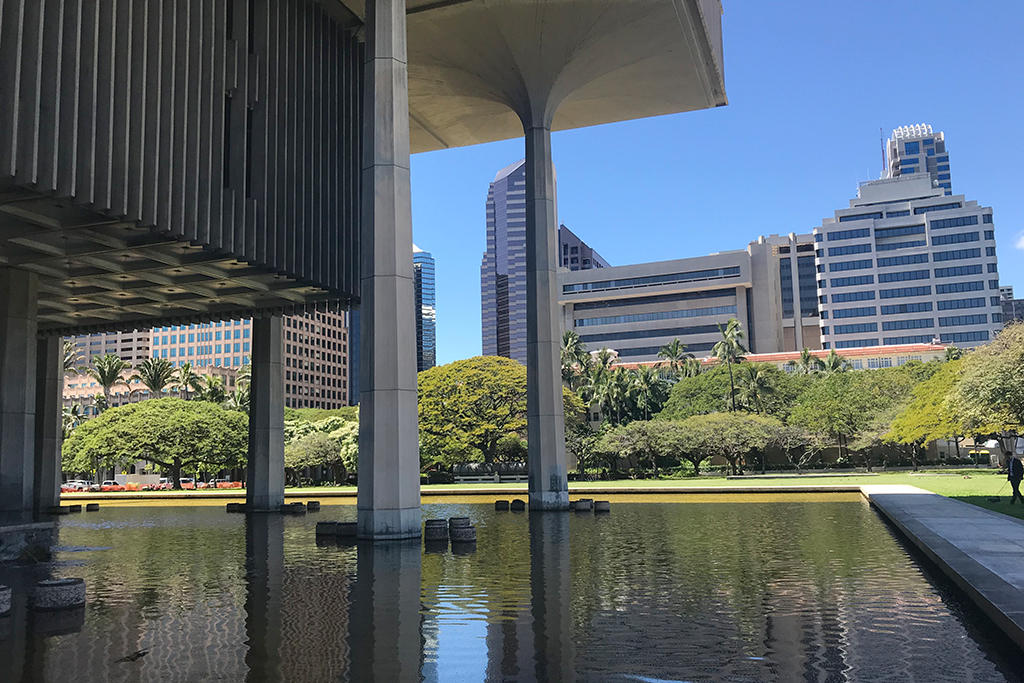
In the aftermath of the war the colonial structures were shaken-up as was the power of plantation owners. In several elections, the Republican Party – which supported the previous system of inequality – lost to the Democratic Party, which sided with both the locals and immigrant labourers to seek full-fledged statehood. On June 29, 1959 almost 95% of the eligible citizens approved this proposal in a popular vote.
Open doors
“Hawaii is a US state but a very different one,” says Derek Ferrar, who works at the Honolulu-based East-West Center and adds, that “our hearts beats almost 8,000 kilometres away from Capitol Hill in Washington”.
This is much more than between Washington and Paris (6,200 km) or between Honolulu and Tokyo (6,100 km).
Located in the lush Manoa Valley above downtown Honolulu the East-West Center was established during the first year of statehood and is a very powerful expression of the Hawaiian ambition to become a genuinely democratic place, supporting people power in its own state and also across the giant Pacific Ocean.
“With our Asia Pacific Governance and DemocracyExternal link initiative we support leadership education programmes for both civil society organisations and governments across this fastest-growing economic region of the world,” explains Ferrar.
The mission of his institute is to “engage people in actively pursuing ideas transnationally”. With more than 65,000 alumni and more than 1,000 partner organisations, the Hawaii East-West Center is today one of the most impressive pro-democracy public diplomacy institutions worldwide.
And there is much more to the Hawaiian American dream, which is a far cry from the backward-looking slogans of ‘Make America Great Again’ that are championed an eight-hour flight away in Washington.
Hawaii really practices – as a former US president once called it – government “of the people, by the people and for the people”.
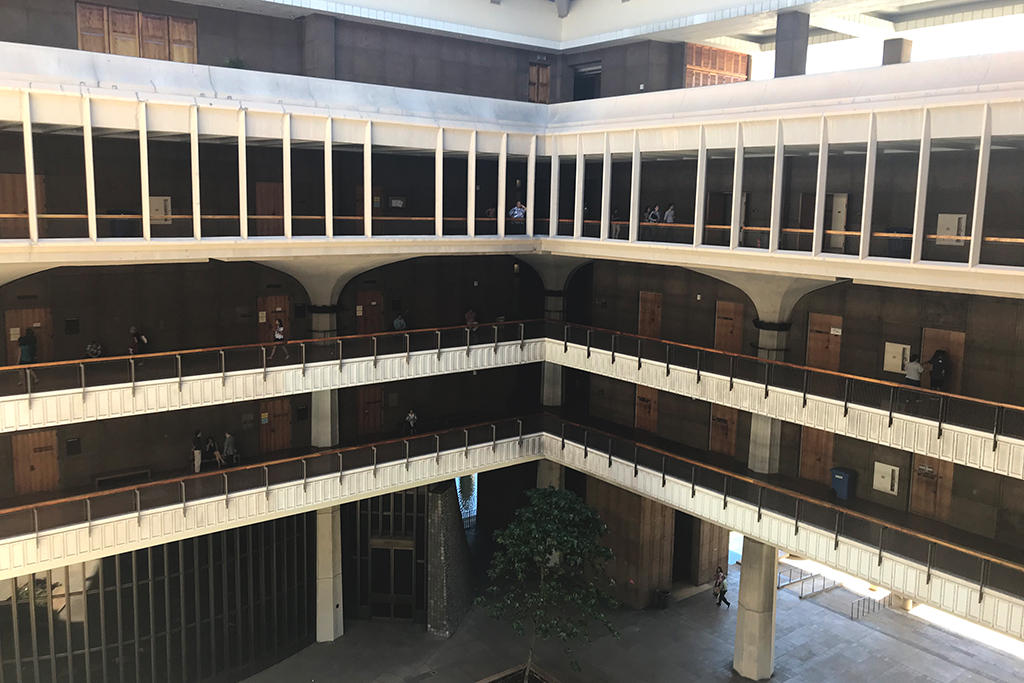
Apart from the mural in the Convention Center and the East-West Center in Manoa Valley, there is also a powerful expression for Hawaii’s version of democracy in central Honolulu: the State Capitol.
“We deliberately did not want to copy the United States Capitol in Washington when designing our political center after gaining statehood,” says Richard Rodrigues, who gives me a tour across the impressive compound at 415 S Beretania Street.
Hawaii features what you could call an open-air parliament and government building, which is surrounded by a reflecting pool, symbolising the Pacific.
“The key word here is public access,” says Rodrigues, while entering one of the two legislative chambers, which are cone-formed to symbolise the volcanoes that formed Hawaii.
“Public access” is more than an advertisement entitlement here: no entry-control or x-ray machines are discouraging people from visiting either the House of Representatives, the Senate or even the Governor’s office on the 5th floor.
Just enter one of the elevators and choose whom you want to speak.
Constitutional convention
The point of the whole set-up of the Hawaii State Capitol is, that “there are no backdoors, through which legislators and administrators can vanish, if a citizen wants to see them,” says Virginia Beck, the Public Access CoordinatorExternal link at the State Capitol.
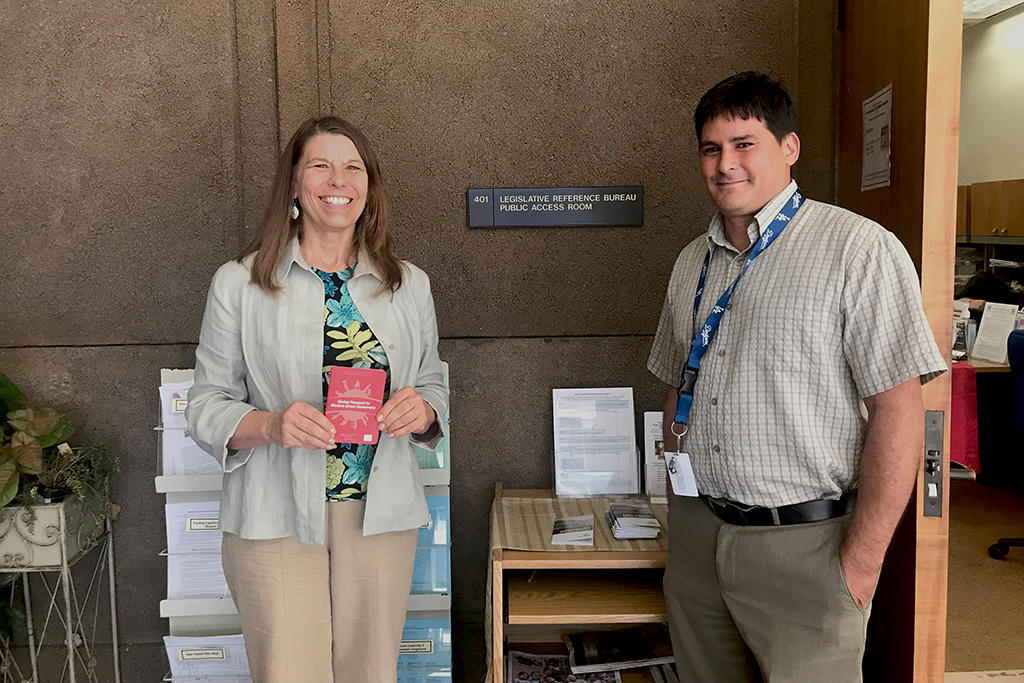
I meet her on the 4th floor, where she can give active citizens advice and information on how they can best make their voices heard.
“We also offer free office space and infrastructure like phones and copy machines for our citizens,” says Beck.
In the coming month, their burden will not become lighter as the State of Hawaii prepares for a very challenging and interesting popular vote on November 6.
“We will vote about having a constitutional convention or not,” Beck says.
Such a convention has happened three times in the archipelago over the last 60 years. The process features first a non-partisan election, then a convention and finally a second popular vote on whether to adopt the proposed new constitution.
It is a great opportunity to make democracy more democratic. The idea is deeply rooted in American history: since independence in 1776 more than 230 state constitutional conventions have been held.
“The Convention is an American invention and widely considered to be one of America’s greatest contributions to democracy,” says J.H. Snider, the editor of the State Constitutional Convention ClearinghouseExternal link – a citizens’ support website for the forthcoming vote in November.
Being far away from Donald Trump and the White House, Hawaii remains a source of great inspiration not just to America but to the whole world.
However, this never was and is a paradise, as the makers of the impressive mural at the Convention Center can attest.
“Our economy is far from the shared responsibilities of keeping the land and our resources in balance,” says Meleanna Meyer.
She refers to a recent citizens’ initiative on the Hawaiian island of Maui. A group of citizens gathered enough signatures to put a proposal to ban genetically modified organisms (GMO) to a popular vote – and they won!
All this in spite of having only $60,000 for the campaign ahead of the November 4, 2014 voteExternal link, while the opponents – sponsored by Monsanto—had more than $8 million.
But the American multinational agrochemical and agricultural biotechnology corporation, using the Hawaii as a testing ground for GMO food, did not accept the vote and referred it to a federal judge, who annulled the result a day later.
“It was not just about GMO or the agriculture but about Hawaiian culture,” says Si Affron, an editorial writer at the Politic Magazine.
Similar battles are fought in continental US — for example around the Dakota Access Line pipeline, which in spite of widespread public opposition has been revived by TrumpExternal link. The 45th US president toils far away from the mid-Pacific archipelago, he even refused to acknowledge that his Hawai’i-born predecessor, Barack Obama, was born in the US.
Now it seems to be time, that Hawaiians and similarly democratically engaged Americans start to make their voices heard all the way to Washington again.
Swiss-Swedish author and journalist Bruno Kaufmann is on a world tour to explore the state of democracy visiting more than 20 countries on four continents until May 2018.
swissinfo.ch has been publishing a weekly Notebook and multimedia reports by Kaufmann as part of its coverage of direct democracy issues.
Kaufmann’s democracy world tour is mainly sponsored by the Swiss Democracy FoundationExternal link, where he is the director of international cooperation. The Swiss Democracy Foundation hosts various projects and platforms linked to participatory and direct democracy across the globe, including Democracy International,External link the Direct Democracy NavigatorExternal link and the Initiative and Referendum Institute Europe.External link

In compliance with the JTI standards
More: SWI swissinfo.ch certified by the Journalism Trust Initiative
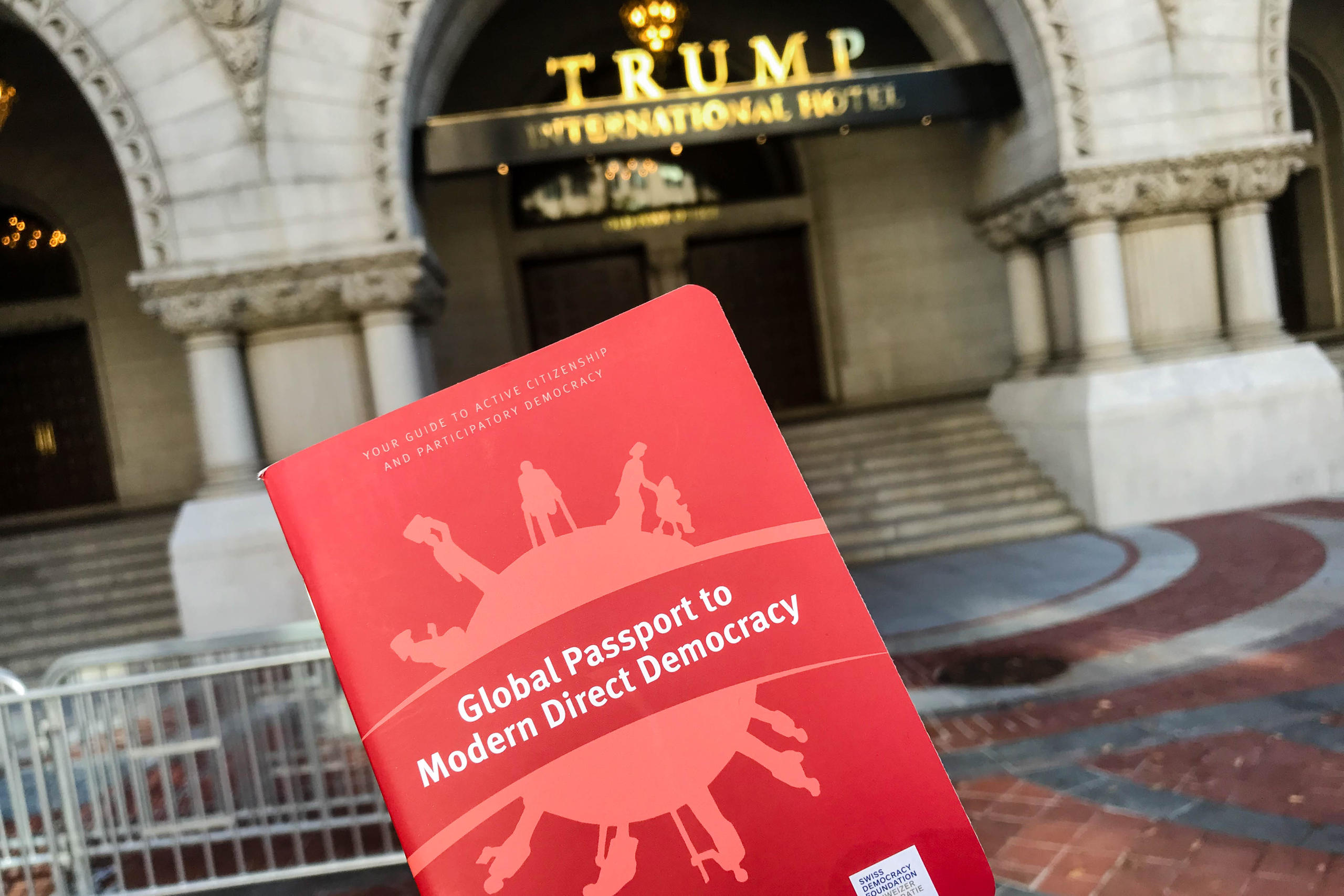
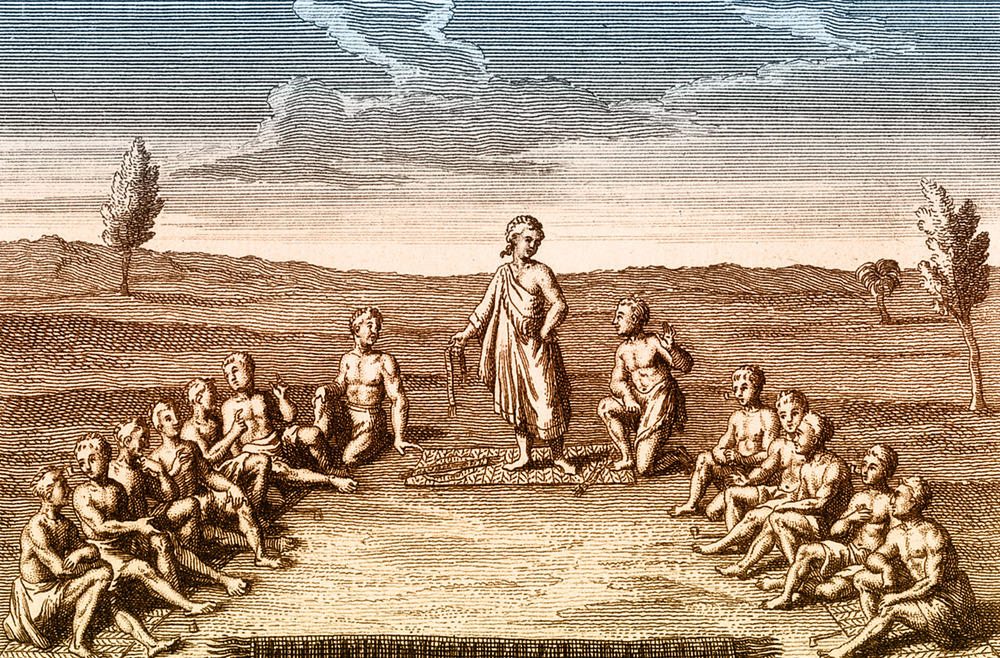
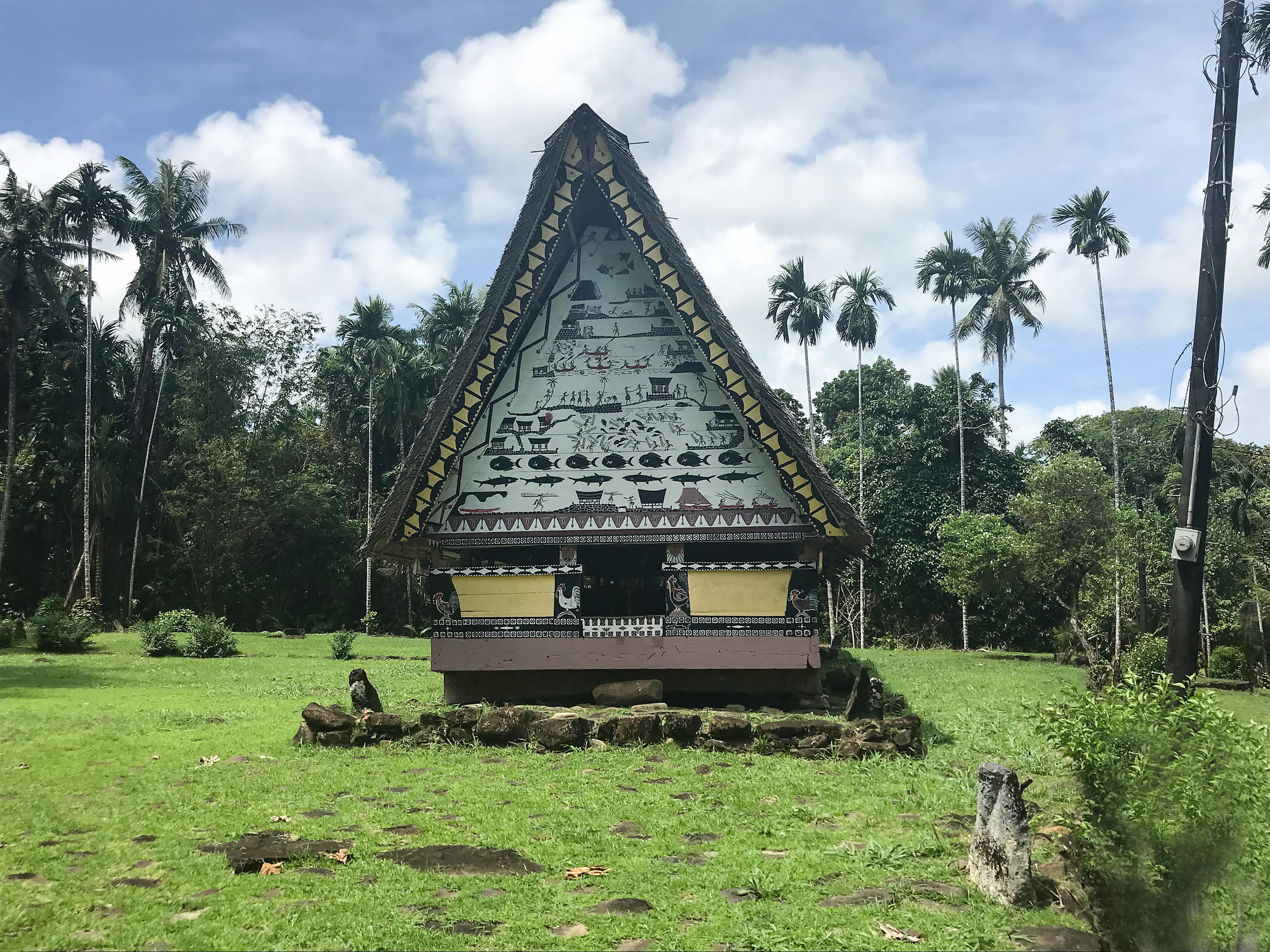
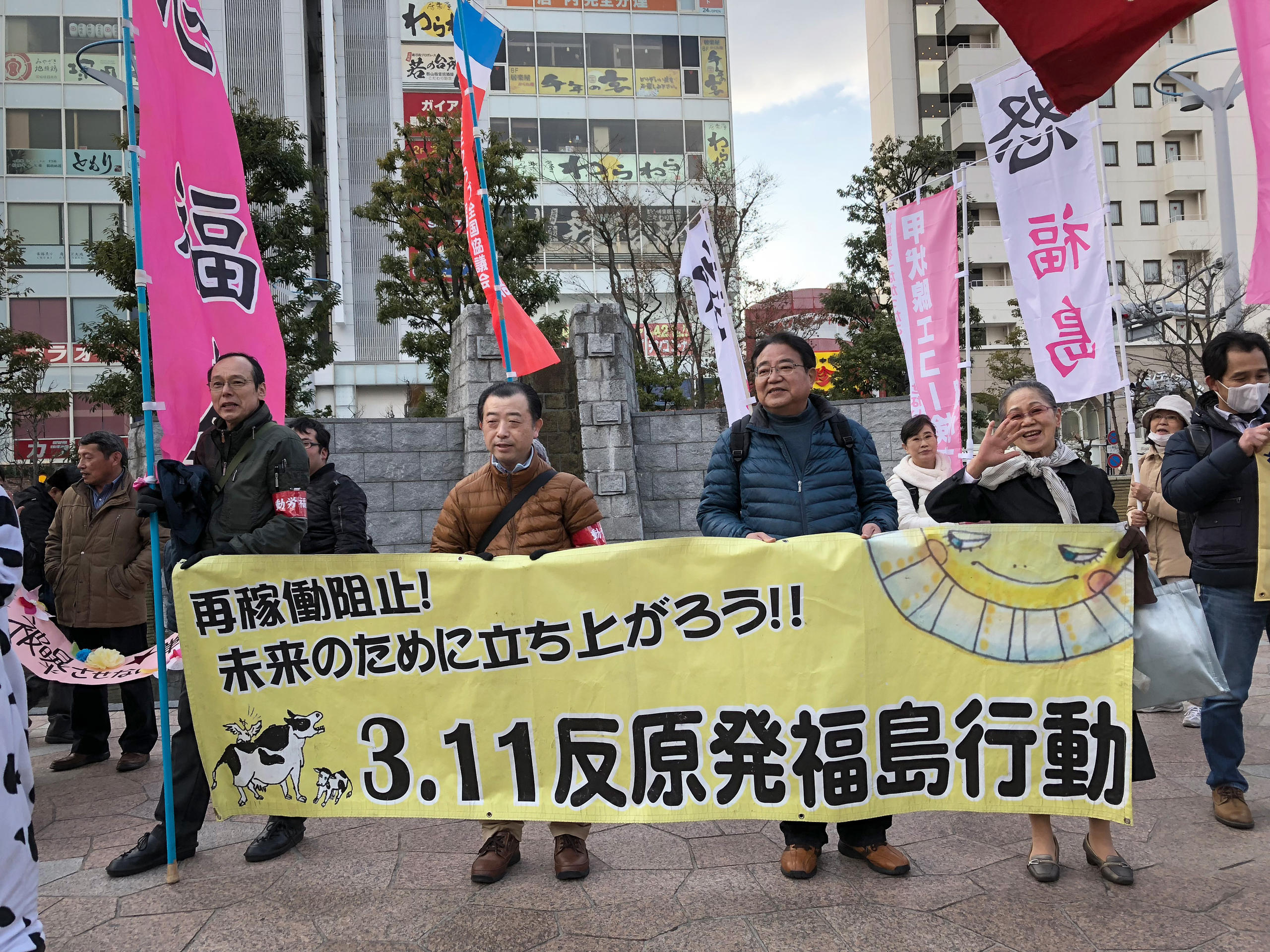
You can find an overview of ongoing debates with our journalists here. Please join us!
If you want to start a conversation about a topic raised in this article or want to report factual errors, email us at english@swissinfo.ch.